
THE NAVIGATING CHANGE CATALOG IS HERE TO HELP YOU ENGAGE, PROVOKE, AND EDUCATE.
Navigating Change: The Podcast from Teibel Education

Building Financial Resilience Through Culture and Strategy: A Higher Education Case Study
For years, finance in higher education has worked quietly behind the scenes—essential, but rarely seen as a force for change. Budgets got balanced, reports got filed, and institutions moved forward... slowly. But what happens when that model starts to crack? When rising costs outpace tuition revenue, and the math that once worked no longer adds up?
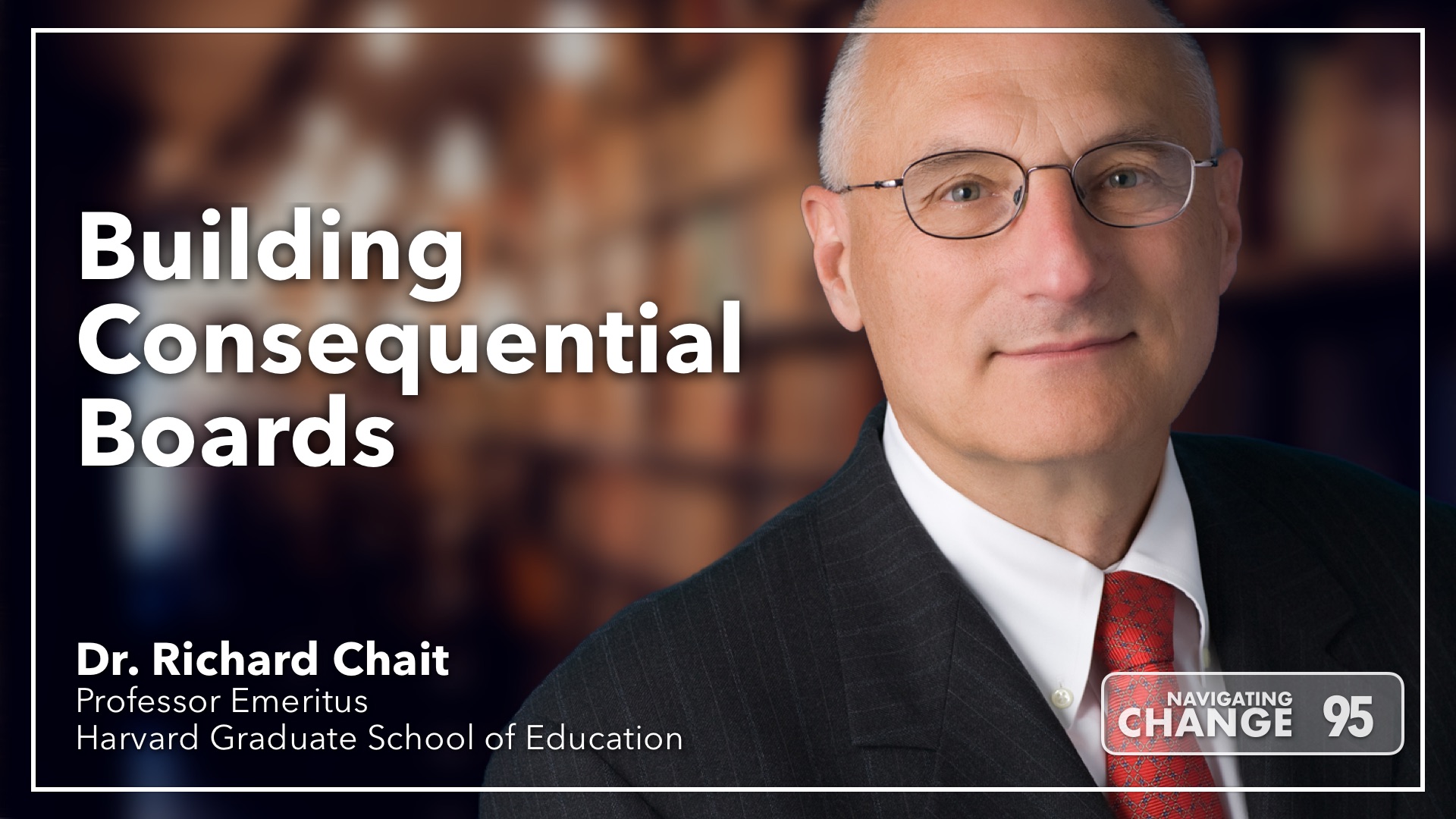
95: Building Consequential Boards with Dr. Richard Chait
Over the past month, we've talked with university presidents, trustees, and faculty, cultivating a dialog around building strong relationships between institutional leadership. In the face of strained board-president relationships, diffused shared governance practices, challenging financial and regulatory environment, stresses on the balance of leadership abound.

228: Looking Beyond the Enrollment Cliff with Professor Nathan Grawe
Joining Howard Teibel today in conversation is Dr. Nathan Grawe, distinguished teaching professor of the social sciences at Carleton College, where he has served on the faculty since 1999. You might have seen Nathan's work as it relates to the framing of the enrollment cliff, something that's been exacerbated and accelerated in this last year.

217: Building Momentum, Trust and Commitment around Strategic Planning: The RISD NEXT 2020-2027 Plan
This week on the show, RISD’s Taylor Scott joins Howard Teibel and Rebeka Mazzone as the three share their perspectives on marshalling the enthusiasm of resources while building a future based on realistic financial goals.
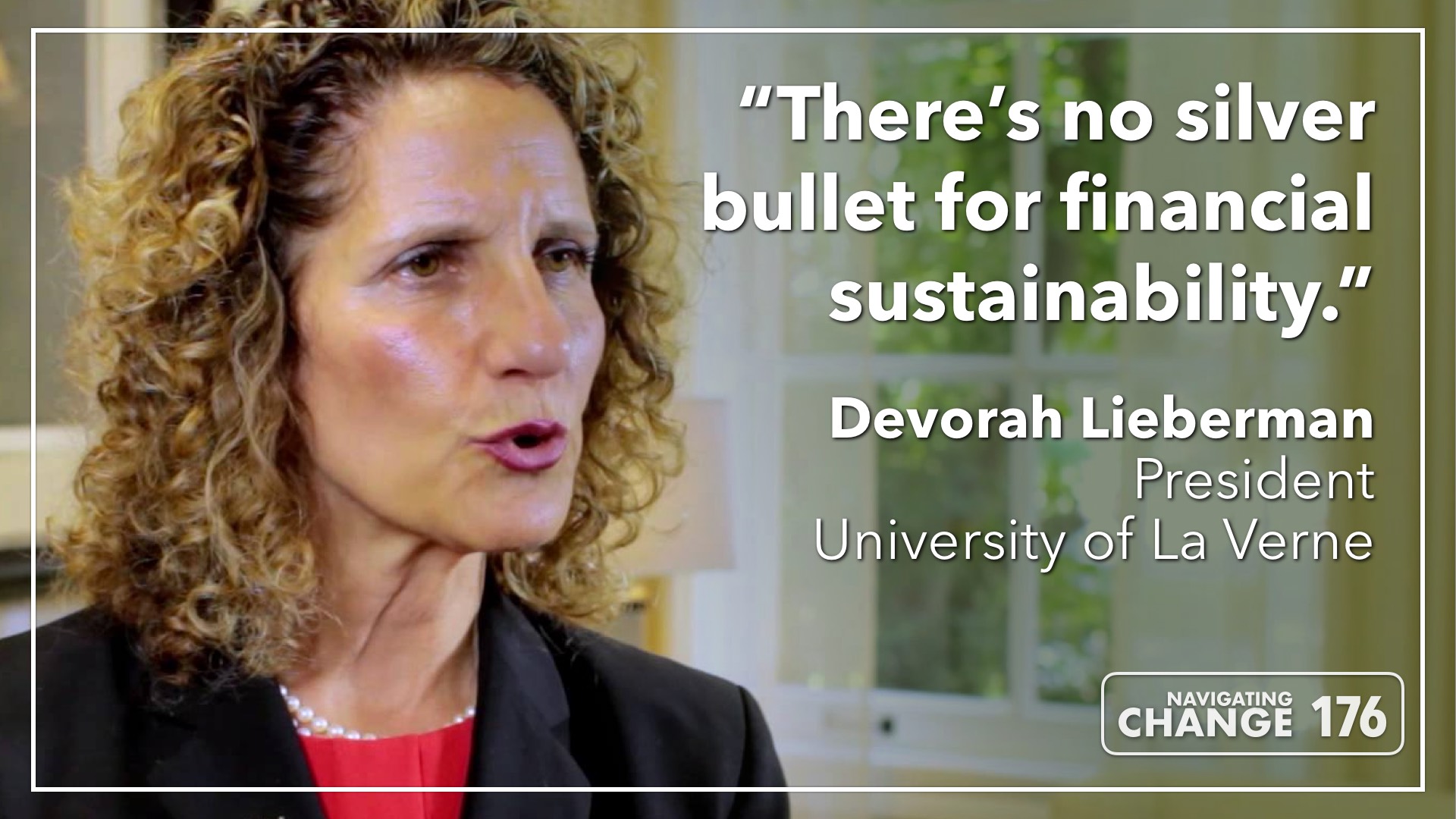
176: There’s No Silver Bullet for Financial Sustainability with University of La Verne President Devorah Lieberman
This week on the show Howard Teibel sits down again with University of La Verne President Devorah Lieberman. Today, President Lieberman shares insights into the planning process with background on the University’s 2020 plan, forecasting 30-year career demand, and driving toward sustainability while maintaining agility.

154: Access, Affordability, and Appreciation for Alternative Education Pathways with the Chronicle’s Scott Carlson
Scott Carlson is an award-winning senior writer for The Chronicle of Higher Education, where he has been contributing to our field since 1999 across a range of issues: college management and finance, the cost and value of higher ed, planning, sustainability and so much more.
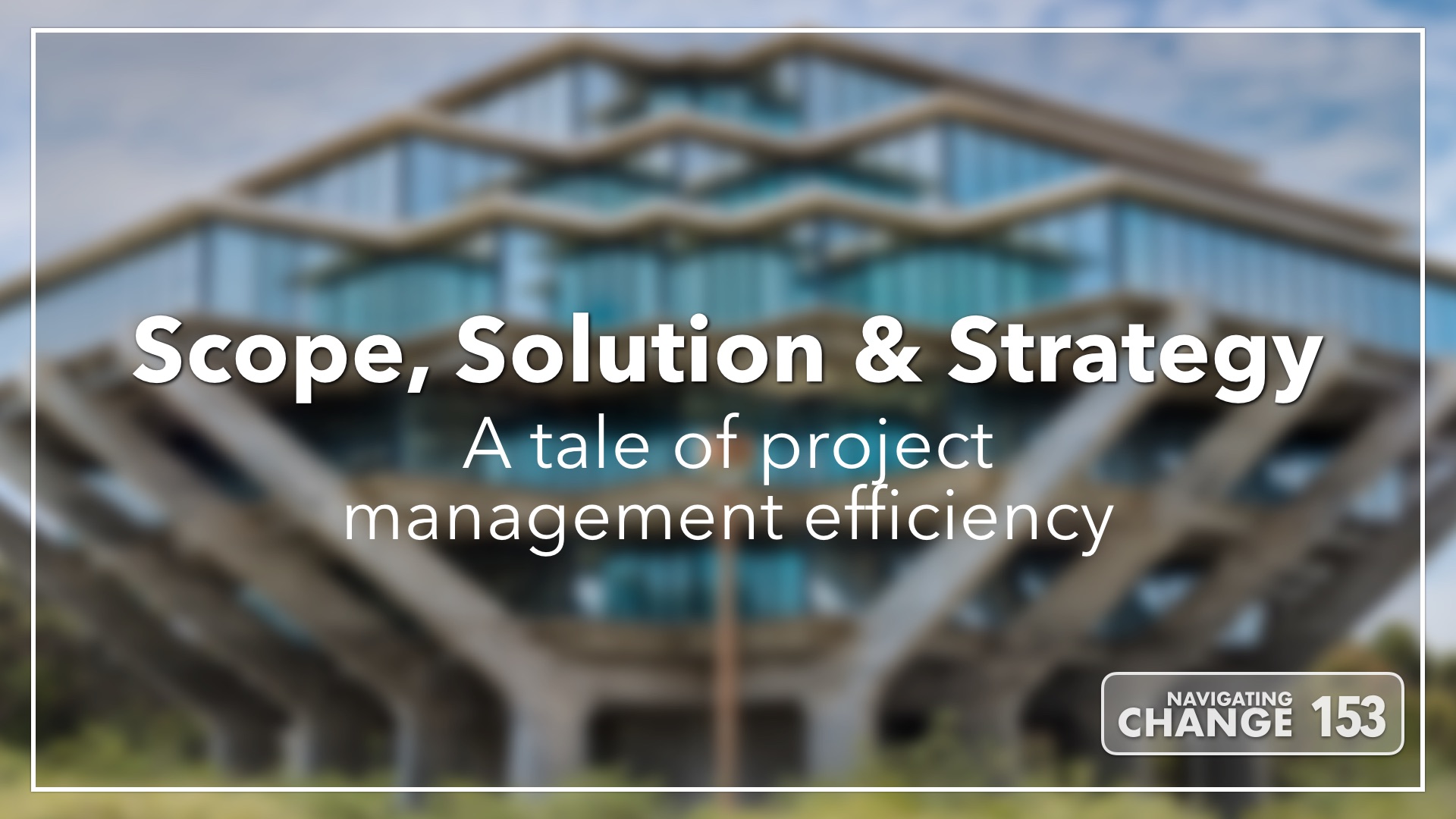
153: Scope, Solution & Strategy — A tale of project management efficiency
This week on the show, Howard Teibel shares a few common missteps in project management that can derail initiatives and offers three steps toward meeting collective buy-in and establishing momentum on your next project undertaking!

145: Engaging in Failure and Creativity with First American's Chad Wiedenhofer
How do you get people to engage in a conversation around failure? According to our guest, “you can see in organizations where iteration and the failure that might come with it is accepted as something that can be positive, and something that can help us get to the destination we’re trying to get to.” Creating a culture of iteration, and adapting toward a state in which you see failure as growth is a challenge, but one worth taking. SVP of First American Education Finance Chad Wiedenhofer joins us today to talk about iteration and growth.

143: Uncovering the Unknown Unknowns — A Systematic Approach to Institutional Risk Management with Janice Abraham
Within the context of academic structures, a robust discussion of risk today must include not just cooperation between academics and administration, but collaboration in preparing for risk scenarios. All this is on the table in this wide ranging conversation with our very special guest, Janice Abraham, president and CEO of United Educators.

141: The Queen Sacrifice — Gambling the Most Precious Asset in Higher Ed with Bryan Alexander
This week on Navigating Change, Bryan Alexander joins us to address a question that eludes the most talented academic strategists: how do you transform academic structures and programs without diminishing the mission?

135: Building a Stronger Student and the Hidden Value in Online Learning with StraighterLine CEO Burck Smith
This week, we welcome Burck Smith to the show to introduce us to the StraighterLine approach to alternative credit pathways, and to outline why it’s a good fit in the broader higher education ecosystem. In our on-going conversation around the value of transfers, StraighterLine demonstrates an interesting and innovative approach to building capable students online.
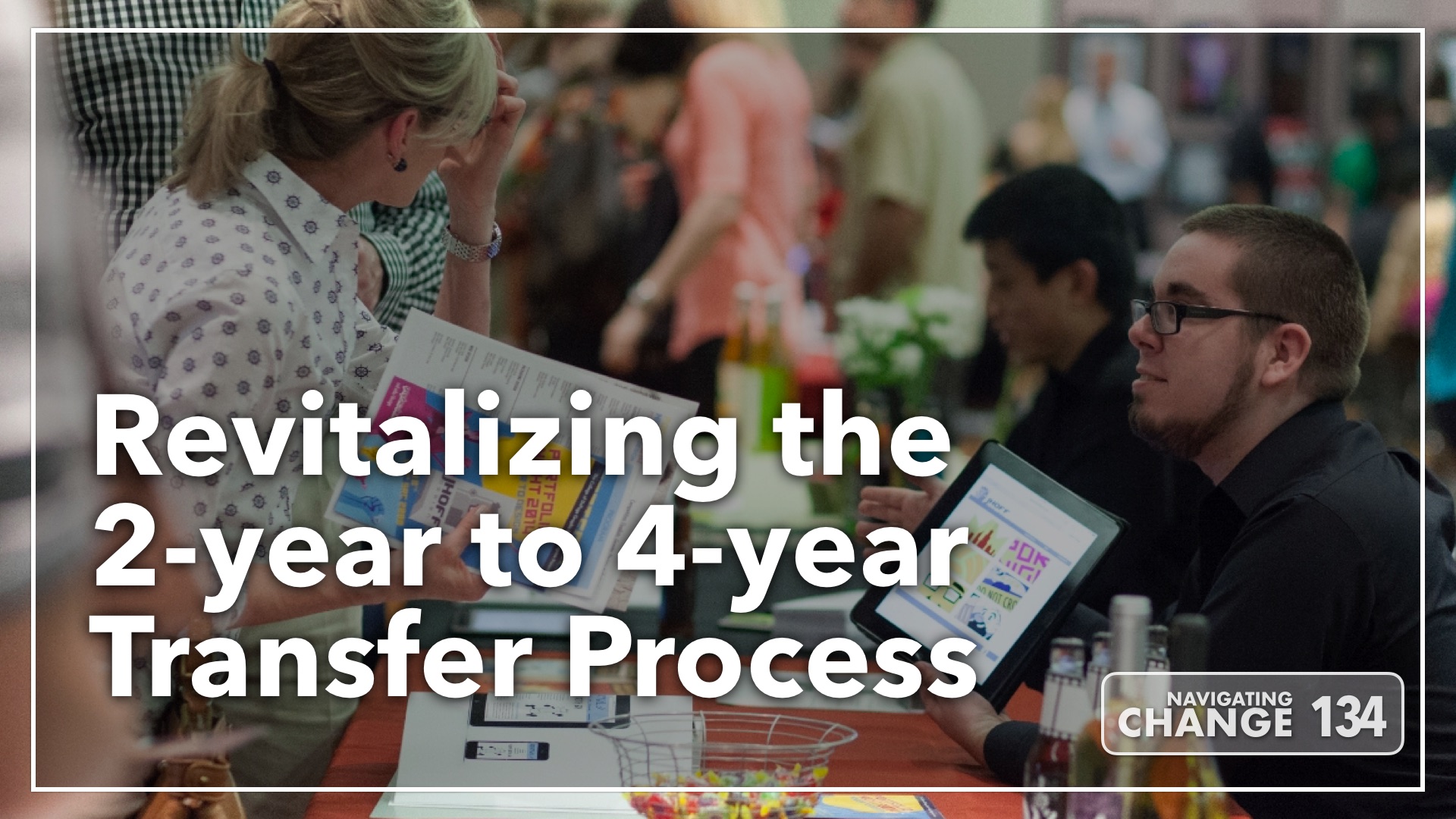
134: Revitalizing the 2-year to 4-year Transfer Process, Massive Opportunity in Higher Education
This week on Navigating Change, we're talking about the 2-year to 4-year transfer system and the increasing impact on the 4-year colleges, and an increased sense of ownership by these schools that this is not a “Community College Problem” alone.
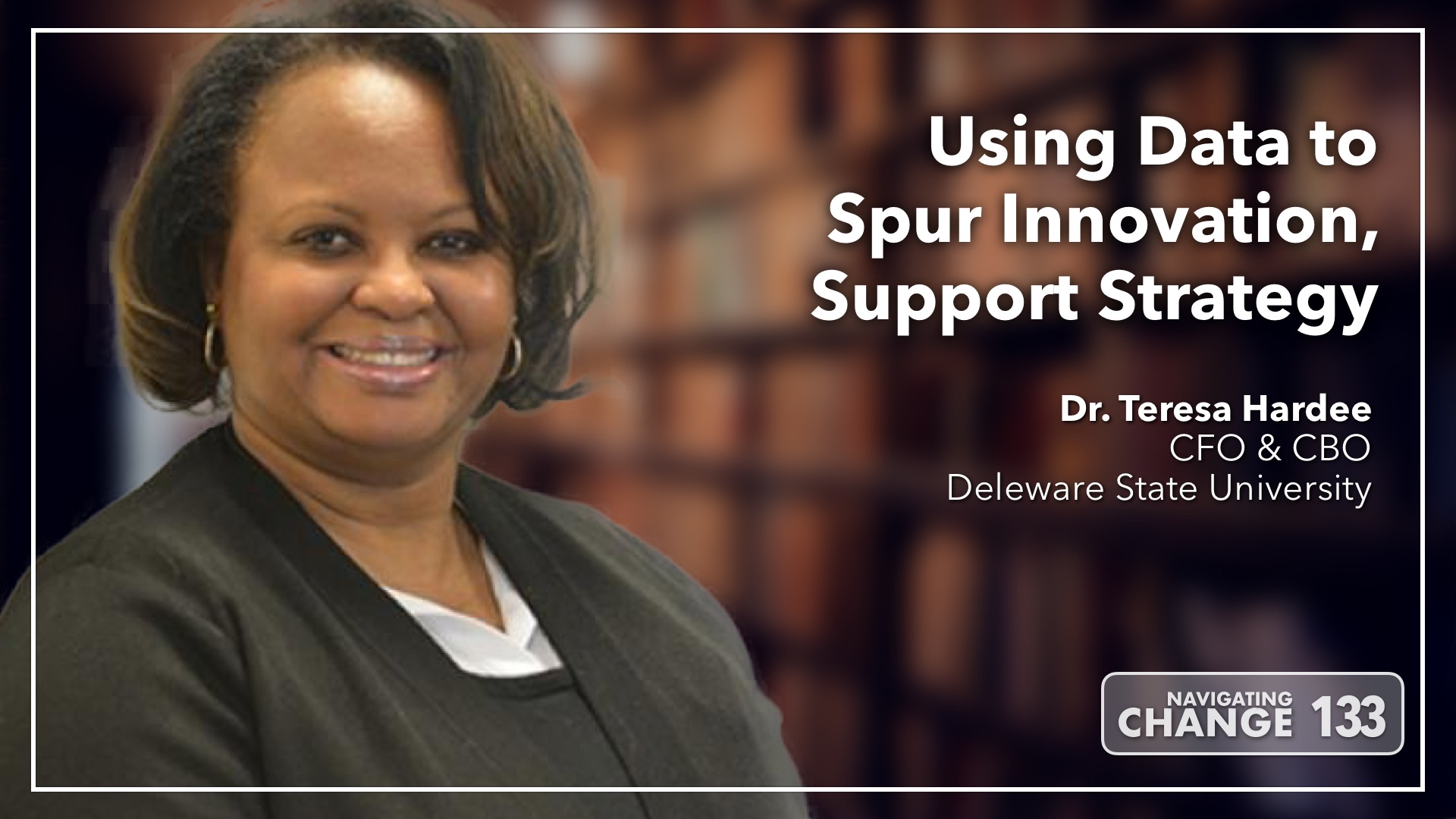
133: Using Data to Spur Innovation, Support Strategy with Delaware State's Teresa Hardee
What does sustainability look like? That’s the question at hand on the show this week, as we navigate the waters of innovation and decision making through strategic use of data. Dr. Teresa Hardee, CFO and CBO at Delaware State University, joins us to share her institution’s story of breaking down silos, encouraging institution-wide participation, and creating a culture of transparency around the numbers.

126: The Levers and Pulleys of Financial Sustainability at NBOA 2016
This week on the show, we talk about the levers and pulleys of financial sustainability — tools of financial officers to make change toward financial sustainability, enrollment, and growth.

118: Building the Organization you Want with NACUBO's Sue Menditto at the 2015 Planning and Budgeting Forum
On September 28th the NACUBO 2015 Planning and Budgeting Forum kicks off in Austin, Texas and today Sue Menditto — NAUCBO’s director of accounting policy — joins us to help us gear up for the conference with a discussion about crafting the organization you really want.

111: Mergers & Aspirations with Rutgers CBO Mike Gower from NACUBO 2015
Being in the middle of a major school merger, Mike Gower knows the importance of clear and concise strategic plan. As SVP for finance and treasurer at Rutgers, Mike has an active role in leading change as these institutions come together, aligning resources and data in service of delivering top tier education for their students.

105: The Hardest Conversations—Ongoing Lessons from Sweet Briar College
This week on the show, Howard Teibel and Pete Wright reflect on Sweet Briar, and the questions and challenges that arise from their move to close after this academic year.

104: Shared Services as a Tool for Change
This week on Navigating Change, Howard Teibel and Pete Wright offer insights and experience in moving toward a shared services model from the administrative and faculty perspectives. It’s a conversation on the wide ranging implications of shared services from better hiring, greater cost management, and building strength in capturing and using data more efficiently.
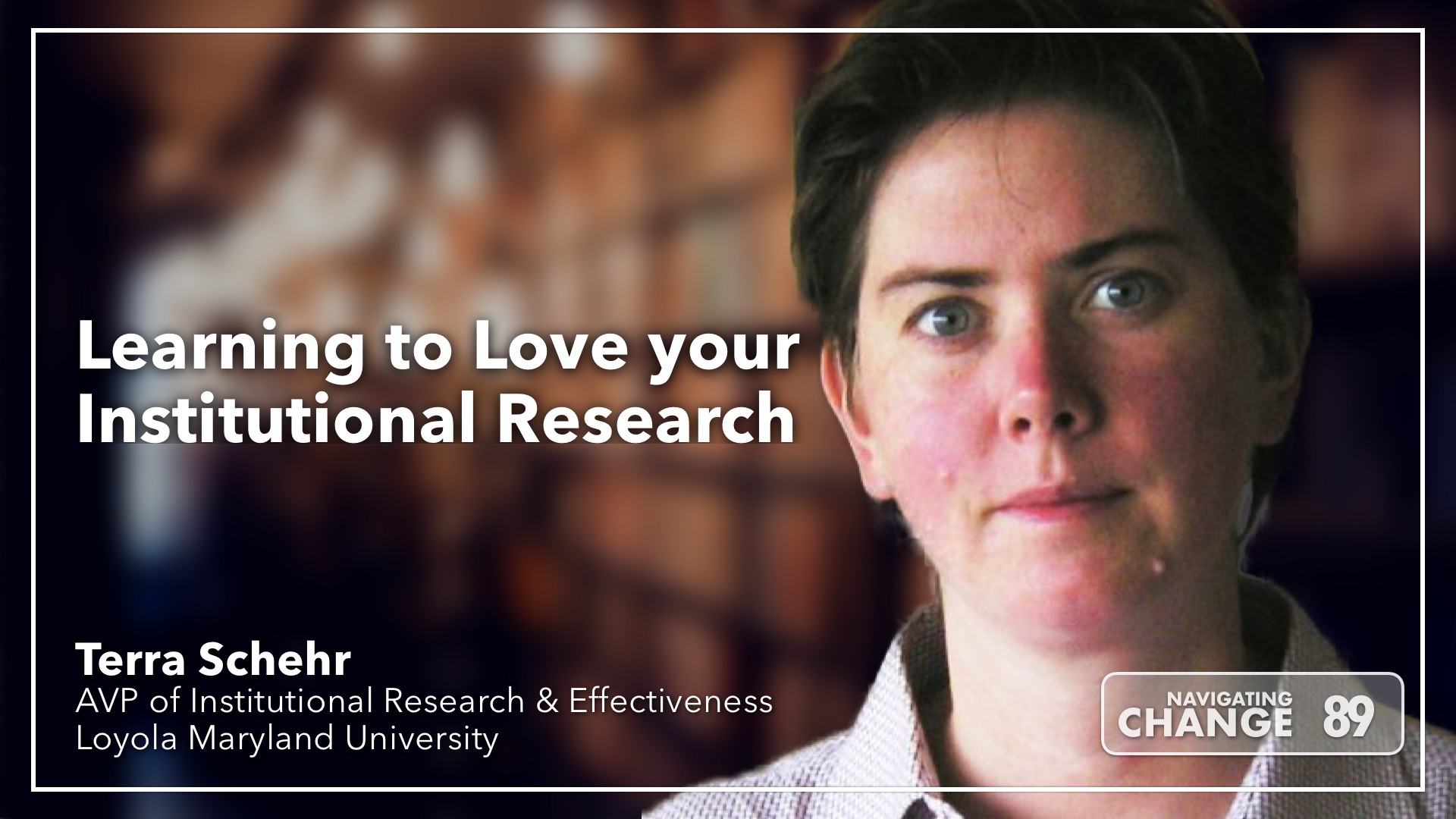
89: Datapoints — Learning to Love your Institutional Research with Loyola's Terra Schehr
Today on the show, we welcome Terra Schehr, Assistant Vice President of Institutional Research and Effectiveness at Loyola University Maryland. Terra shares her experience leading the IR team in demonstrating and serving the institution through data.

75: Building Outstanding Consulting Partnerships
This week on Navigating Change, Howard Teibel shares his experience in building outstanding relationships with external consultants as a consultant himself. From setting clear boundaries for communication, to taking on key strategic responsibilities, Howard’s insights offer a keen view into what makes a consultative partnership valuable in achieving the strategic goals of the institution.







